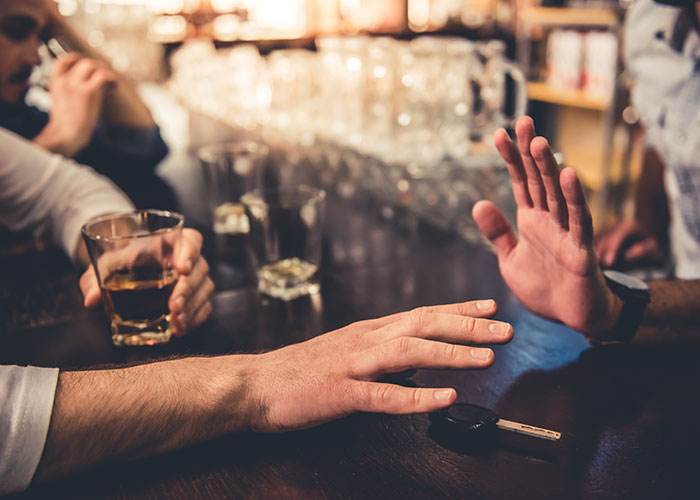DUI (Driving Under The Influence)
In Washington State, a person may commit DUI if he/she operates a vehicle within Washington and (a) the person has, within two hours after driving, an alcohol concentration of 0.08 or higher as shown by an analysis of the person’s breath or blood; (b) the person is under the influence of or affected by intoxicating liquor or any drug; or (c) the person is under the combined influence of or affected by intoxicating liquor and any drug.
DUI is a gross misdemeanor. However, starting July 1, 2007, a DUI is a class C felony if the person is a juvenile, or if (a) the person has four or more prior offenses within ten years or (b) the person was previously convicted of vehicular homicide while under the influence of intoxicating liquor or any drug or vehicular assault while under the influence of intoxicating liquor or any drug. A conviction of DUI involves mandatory minimum jail time and statutory fines and assessments, depending on a person’s prior criminal history. In addition, a person convicted of DUI will have his/her license suspended or revoked and be required to have an Ignition Interlock Device installed in any vehicle he/she operates. Further, high-risk insurance (SR-22) and alcohol treatment may be required prior to license reinstatement.
The penalties described here are similar for Physical Control of Vehicle while Under the Influence and Driving under 21 Consuming Alcohol.
Initial Stop
In order for a law enforcement officer to pull a vehicle over, an officer generally must have probable cause to believe the driver has committed a violation or observe a driver commit a violation. It is usually a valid reason to pull a driver over if the driver fails to signal a turn, weaves, speeds, fails to stop, etc.
Roadside Tests or Field Sobriety Tests
After making contact with the driver, if the law enforcement officer suspects the driver is intoxicated, the officer may ask the driver to perform a set of Roadside Tests at the scene. Such Roadside Tests typically include a PBT (preliminary breath test), Horizontal Gaze Nystagmus (follow the pen with eyes), Walk and Turn, One Leg Stand, or Finger Dexterity. These tests are not mandatory. Roadside Tests are strictly voluntary and a driver is under no obligation to perform any Roadside Tests. A driver should usually politely refuse to undergo any roadside tests.
Arrest
If a law enforcement officer has probable cause, the officer may place the driver under arrest for suspicion of DUI. At this time, an officer should inform the driver of his/her constitutional rights which are:
- You have the right to remain silent; You have the right at this time to an attorney; Anything you say can and will be used against you in a court of law; If you are under the age of 18, anything you say can be used against you in a juvenile court prosecution for a juvenile offense and can also be used against you in an adult court criminal prosecution in the juvenile court decides that you are to be tried as an adult; You have the right to talk to an attorney before answering any questions; You have the right to have an attorney present during the questioning; If you cannot afford an attorney, one will be appointed for you without cost if you so desire; You can exercise these rights at any time; Do you understand these rights?
Generally, an arrested person should exercise the right to remain silent and politely refuse to answer any questions of the officer. At the earliest point possible, an arrested person should exercise the right to contact an attorney.
Implied Consent
Under Washington’s Implied Consent Law, every person who operates a vehicle in Washington has impliedly consented to having his/her breath or blood tested for alcohol and/or drugs by a law enforcement officer whenever that officer has grounds to believe that the driver has alcohol and/or drugs in his/her system. Prior to a law enforcement officer asking a driver to submit to a breath or blood test, the officer is required to give the driver statutory warnings regarding their right to refuse the test, the consequences if the driver chooses to do so, and the right to have additional tests administered independently.
Breath Test
A person arrested for suspicion of DUI will be transported to law enforcement headquarters to be given a breath test. In Washington, the two instruments approved for measurement of a person’s breath are the BAC Datamaster or the BAC Datamaster CDM. A test of a person’s breath for alcohol concentration consists of the person blowing, at least twice, into the instrument. The two separate breath samples constitute one test. Results are shown on a ticket printed from the machine at the conclusion of the test. This test is voluntary. However if a person refuses to submit to this breath test, he/she may have their license to drive suspended or revoked for one year or longer. It is highly recommended an arrested person contact an attorney prior to being administered this test.
License Suspension
If a person is arrested for DUI in Washington State, two separate and distinct entities will seek to suspend or revoke you driver’s license. The Court will suspend or revoke your license if you are convicted of DUI in a court of law. Also, the Department of Licensing will seek to suspend or revoke your license administratively 60 days after the date of your arrest, unless you request an administrative hearing within 30 days of the date of your arrest.
DUI Do’s and Don’ts
Do
Always have a designated driver.
Don’t
Don’t drive after consuming alcohol.
Do
If signaled to pull over by a law enforcement officer, then promptly pull over in a safe manner.
Don’t
Don’t attempt to flee a law enforcement officer.
Do
Have your license, proof of registration and insurance ready to hand to the officer.
Don’t
Don’t make sudden, unwarranted movements, while the officer is approaching the vehicle.
Do
Be polite and give the officer your name, address, date of birth, etc. if requested. Otherwise, remain silent.
Don’t
Don’t offer any additional information or make any wise remarks.
Don’t
Don’t perform any Roadside Tests.
Do
Remain silent if you are arrested and contact an attorney immediately.






